Peter Guralnick is an American music critic, author, and screenwriter. He specializes in the history of early rock and roll and has written books on Elvis Presley, Sam Phillips, and Sam Cooke.
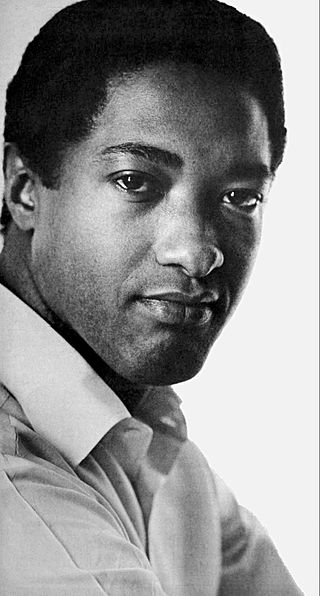
Samuel Cooke was an American singer and songwriter. Considered one of the most influential soul artists of all time, Cooke is commonly referred to as the "King of Soul" for his distinctive vocals, pioneering contributions to the genre, and significance in popular music. During his eight-year career, Cooke released 29 singles that charted in the Top 40 of the Billboard Hot 100 chart, as well as 20 singles in the Top Ten of Billboard's Black Singles chart.

"A Change Is Gonna Come" is a song by American singer-songwriter Sam Cooke. It initially appeared on Cooke's album Ain't That Good News, released mid-February 1964 by RCA Victor; a slightly edited version of the recording was released as a single on December 22, 1964. Produced by Hugo & Luigi and arranged and conducted by René Hall, the song was the B-side to "Shake".

"Wonderful World" is a song by American singer-songwriter Sam Cooke. Released on April 14, 1960, by Keen Records, it had been recorded during an impromptu session the previous year in March 1959, at Sam Cooke's last recording session at Keen. He signed with RCA Victor in 1960 and "Wonderful World", then unreleased, was issued as a single in competition. The song was mainly composed by songwriting team Lou Adler and Herb Alpert, but Cooke revised the lyrics to mention the subject of education more.

The Great Otis Redding Sings Soul Ballads, simply referred to as Soul Ballads or Sings Soul Ballads, is the second studio album by American soul singer-songwriter Otis Redding, released in 1965. The album was one of the first issued by Volt Records, a sub-label of Stax Records, and Redding's first on the new label. Like Redding's debut Pain in My Heart (1964), Soul Ballads features both soul classics and originals written by Redding and other Stax Records recording artists. The recording sessions took place at the Stax studios in Memphis. The album features a stereo mix made by engineer Tom Dowd, replacing the early mono mix.

"You Send Me" is a song written and originally recorded by American singer Sam Cooke, released as a single in 1957 by Keen Records. Produced by Bumps Blackwell and arranged and conducted by René Hall. The song, Cooke's debut single, was a massive commercial success, becoming a No. 1 hit on both Billboard's Rhythm & Blues Records chart and the Billboard Hot 100.
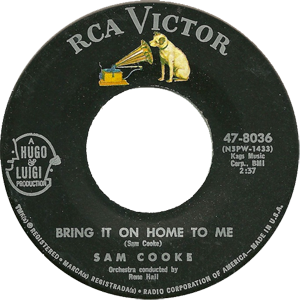
"Bring It On Home to Me" is a song by the American soul singer Sam Cooke, released on May 8, 1962, by RCA Victor. Produced by Hugo & Luigi, and arranged and conducted by René Hall, the song was the B-side to "Having a Party". The song peaked at number two on Billboard's Hot R&B Sides chart, and also charted at number 13 on the Billboard Hot 100. The song has become a pop standard, covered by numerous artists of different genres. It is one of The Rock and Roll Hall of Fame's 500 Songs that Shaped Rock and Roll.
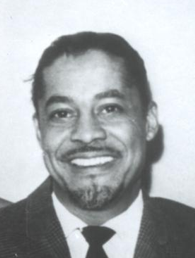
Ernest Aaron Freeman was an American pianist, organist, bandleader, and arranger. He was responsible for arranging many successful rhythm and blues and pop records from the 1950s to the 1970s.

The Blossoms were an American girl group that originated from California. During their height of success in the 1960s, the group's lineup consisted of Darlene Love, Fanita James, and Jean King.

Portrait of a Legend: 1951–1964 is a compilation album by American singer-songwriter Sam Cooke, released posthumously on June 17, 2003, by ABKCO Records. The disc covers Cooke's entire career, from his early 1950s beginnings with the Soul Stirrers to the posthumous 1964 single "Shake". The collection includes most of the singer's hit singles, including "You Send Me", "Wonderful World", "Chain Gang", "Cupid", "Twistin' the Night Away", "Bring It On Home to Me", "Another Saturday Night", "Little Red Rooster", "Ain't That Good News", "Good Times", and what is often regarded as Cooke’s magnum opus, "A Change Is Gonna Come".

"I'll Come Running Back to You" is a song written and recorded by American singer-songwriter Sam Cooke, released November 18, 1957, by Specialty Records. The songwriting credit was attributed to "S. Cook" by the label. The song was a number one hit on Billboard's Hot R&B Sides chart, and also peaked at No. 18 on the Billboard Hot 100.
"Ain't That Good News", also known as "Good News", is a song written and performed by soul singer Sam Cooke, released on RCA Records in 1964. The song was recorded in three takes for the 1964 album of the same name and reached number eleven on the pop chart, and number one on the Cashbox Magazine's R&B charts as a single. Cooke performed the song live on American Bandstand on April 4 of the same year. It is a modern adaptation of an older gospel song of the same title.
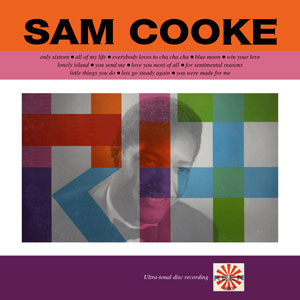
Hit Kit is a greatest-hits compilation by American singer-songwriter Sam Cooke. The package of previously released singles was assembled, according to Cashbox, for "quick commercial consumption."

"Only Sixteen" is a song by American singer-songwriter Sam Cooke, released in May 1959. It was a top 15 hit on Billboard's Hot R&B Sides chart and also charted within the top 30 of the Billboard Hot 100 and the UK Singles Chart. In the UK it was covered, and taken to No. 1, by Craig Douglas.
"Sad Mood" is a song by American singer-songwriter Sam Cooke, released on November 8, 1960 by RCA Victor. Arranged and conducted by Sammy Lowe, the song charted within the top 30 of Billboard's Hot R&B Sides chart and the Billboard Hot 100.

"Having a Party" is a song by American singer-songwriter Sam Cooke, released on May 8, 1962, by RCA Victor. Produced by Hugo & Luigi and arranged and conducted by René Hall, the song was the A-side to "Bring It On Home to Me". The song peaked at number four on Billboard's Hot R&B Sides chart, and also charted at number 17 on the Billboard Hot 100.
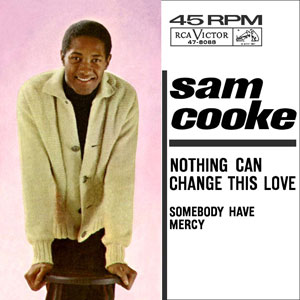
"Nothing Can Change This Love" is a song by American singer-songwriter Sam Cooke. It was released as a single on September 11, 1962 by RCA Victor. The song peaked at No. 2 on Billboard's Hot R&B Singles chart, and also charted at No. 12 on the Hot 100. The song later got on the album Mr. Soul.
"Somebody Have Mercy" is a song by American singer-songwriter Sam Cooke, originally released in April 1962 on the album Twistin' the Night Away.
"That's It—I Quit—I'm Movin' On" is a song recorded by American singer Sam Cooke, released on February 14, 1961 by RCA Victor. Produced by Hugo & Luigi and arranged and conducted by Sammy Lowe, the song was a top 30 hit on Billboard's Hot R&B Sides chart and the Billboard Hot 100.

"Lonely Island" is a song by American singer-songwriter Sam Cooke, released on March 24, 1958 by Keen Records. The song peaked at number 10 on Billboard's Hot R&B Sides chart, and also charted within the top 30 of the Billboard Hot 100.















